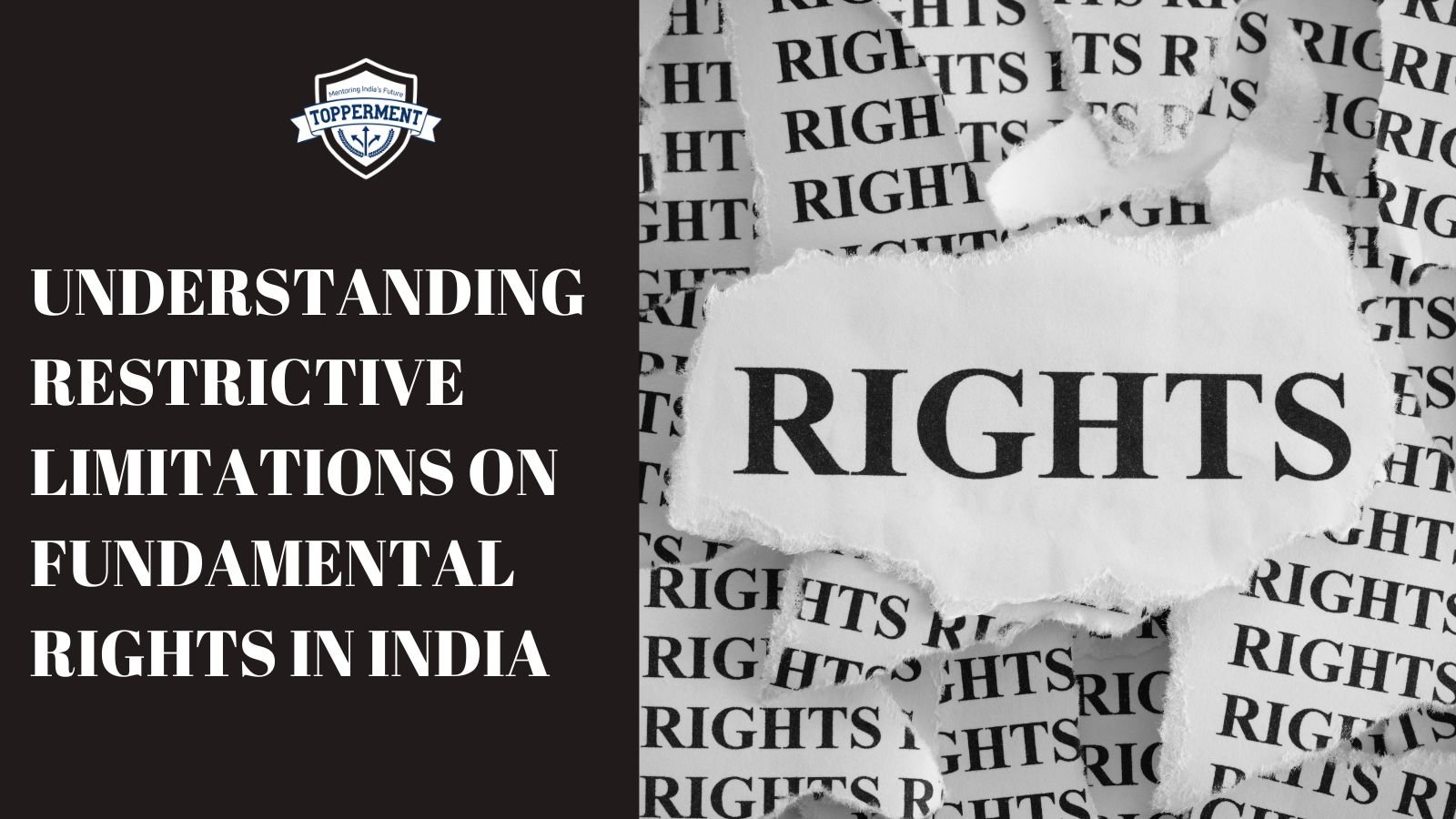Fundamental rights are the basic rights that every Indian citizen is entitled to under the Constitution of India. However, these rights are not absolute and are subject to certain restrictions. These restrictions are necessary to ensure the security, integrity, and sovereignty of the country, and to maintain public order, morality, and health
Article 19 – Freedom of Speech and Expression
• This right can be restricted on grounds of public order, decency, morality, and security of the state.
• The government can impose reasonable restrictions on the right to freedom of speech and expression in the interest of sovereignty and integrity of India, friendly relations with foreign states, public order, decency, or morality.
Article 21 – Right to Life and Personal Liberty
• This right cannot be suspended except by the procedure established by law.
• The government can impose reasonable restrictions on the right to life and personal liberty in the interest of the sovereignty and integrity of India, the security of the State, friendly relations with foreign States, public order, decency, or morality.
Article 25 – Freedom of Religion
• The government can impose restrictions on the freedom of religion in the interest of public order, morality, and health.
• The government can regulate or restrict any economic, financial, political, or other secular activity associated with religious practice.
Article 32 – Right to Constitutional Remedies
• This right cannot be suspended except by the procedure established by law.
• The government can impose reasonable restrictions on the right to constitutional remedies in the interest of the sovereignty and integrity of India, the security of the State, friendly relations with foreign States, public order, decency, or morality.
Article 370 – Special Status of Jammu and Kashmir
• This article provided special status to Jammu and Kashmir, giving it autonomy to have its own Constitution, flag, and the power to make laws.
• This article was abrogated by the Indian government in 2019.
The Indian Constitution provides fundamental rights to every citizen, but these rights are subject to reasonable restrictions in the interest of the sovereignty and integrity of India, public order, decency, morality, and health. It is important to strike a balance between these rights and restrictions to ensure the smooth functioning of the country.
Also Read
- United Nations General Assembly (UNGA): Strengthening Global Cooperation | UPSC International Relations
- UPSC CSE Booklist 2023 | Union Public Service Commission
Follow Us For More Content On:
https://www.instagram.com/topperment/
Tag:Article 19, Article 21, Article 25, article 32, Fundamental Rights, IAS, IFS, India, IPS, IRS, Polity, Restrictive Limitations, UPSC


